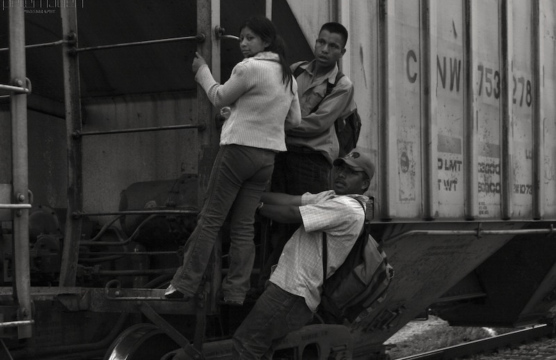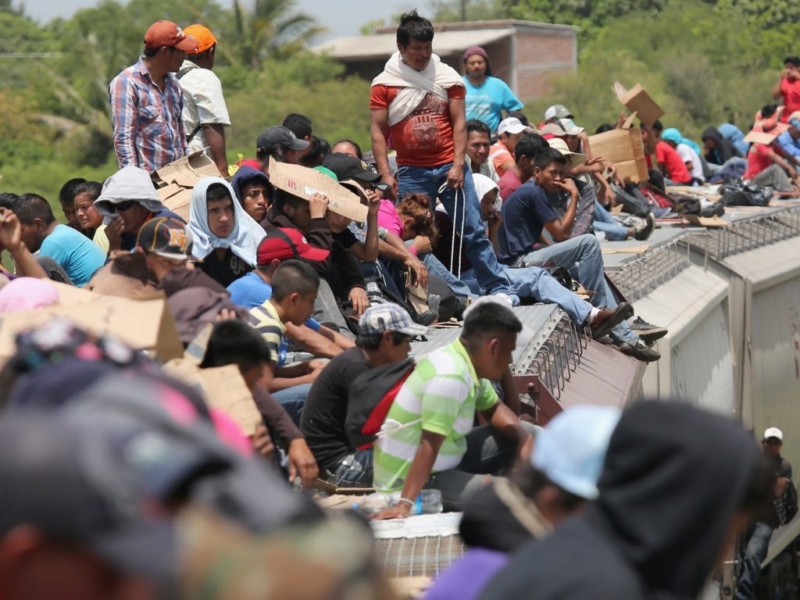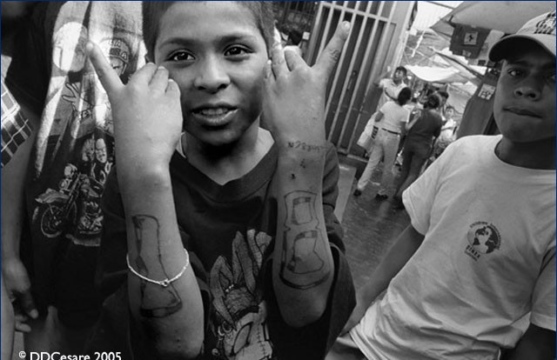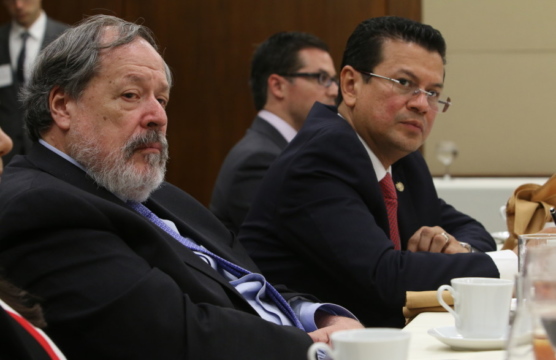
Congressional Testimony: Challenges at the Border
More than 52,000 Central American children, passing through Mexico, have sought entry into the US.
On Friday, June 14 the Keough School’s Notre Dame Initiative for Global Development (NDIGD) in partnership with the Wilson Center’s Latin American Program hosted an event titled “Central America and Emigration: Beyond the Root Causes” with experts from Guatemala, Honduras and the United States. The panel was comprised of two parts, the first being featuring broad discussion and the second focusing on recommendations. The first featured Honduran economist and former president of the Central Bank and Minister of Finance Hugo Noé Pino; a Guatemalan Advisor of the Program for Competiveness and Investment Ana Gabriela Pérez; and a researcher for the Centro de Documentación in Honduras Leticia Solomán, and was moderated by Director of Policy for the Seattle International Foundation Eric Olson. The second featured Oxfam’s Senior Policy Advisor for Central America and Mexico Vicki Gass; the Inter-American Dialogue’s Director of the Peter D. Bell Rule of Law Program Michael Camilleri; Senior Associate at the Latin American Working Group Daniella Burgi-Palomino; and Associate Policy Analyst at the Migration Policy Institute Ariel Ruiz Soto, and was moderated by Distinguished Professor of the Practice and Director of the NDIGD Ray Offenheiser.
Noé Pino began the discussion by mentioning principle attributes of the post-war transition period in Central America in the 80s, specifically the failed democratic reform following the Washington Consensus. He stated that no program for institutional reform would have results without a full democratic transition and with elites continuing to appropriate disproportionate benefits. Real citizen participation is necessary for effective political transition, and without this, democratic processes are incomplete. After the regional war, many people were not incorporated into the model for growth, contributing to a regional problem of inequality.
Gabriele Pérez started by urging policymakers to think locally but act regionally. The themes that cause migration occur quickly, and so flexible and multinational policies are necessary to address this trend. Additionally, Perez highlights that we need information to form effective strategies, and we need strong political will to attain that information. She finished by stating that in order for citizens to enjoy a better quality of life, the state needs a strong presence in the Guatemalan territories.
After Pérez addressed the importance of effective rule of the territories, Salomón emphasized analysis at the state rather than the individual level. To strengthen democratic governability, political leaders must find spaces for negotiation, rather than punish citizen protest with brutal force. Salomón also highlighted rule of law issues in the region, including the need to restore the regional legitimacy of rule of law, create strong institutional capacity, allow for checks and balances, reduce the control of elites, strengthen the fight against corruption, and stop the robbing of state resources.
Then, Salomón mentioned the International Commission Against Impunity (CICIG) in Guatemala and the fight against impunity. The CICIG is an international body in Guatemala supported by the United Nations that is in charge of investigating and prosecuting war crimes. She recommends the government secures internal and external security of the CICIG and pushes reforms to reduce judicial unpredictability. She stated that the most frequent crimes testing the judicial system in Guatemala are narcotrafficking, common misbehavior, and “maras y pandillas” (gangs). Finally, Salomón stated that the government should act in the interest of not just the people of today but of the children 20 years from now. Leadership could present multi-year budget proposals. In the case of Honduras, children do not have social security and the constitution prohibits re-election, making people more short term focused and policies for the long-term more difficult to implement.
In the second panel on recommendations, Gass began by stating that it is impossible to explain migration without addressing the crisis of democracy in the region. She explained that policies for fiscal policy in Central America have typically been regressive. Even though the United Nations suggests a 20% tax rate to meet the Sustainable Development Goals, tax rates in Central America are typically much lower and hurt the poor the most, even though this group benefits the least from social services. Consequently, countries use indirect taxes to make up for low tax rates. To reduce tax evasion, Gass suggested regional cooperation. She also states that the government needs to start prioritizing public investment over policies that attract foreign investors, as at this moment foreign investors can do 20 years of business in Guatemala without paying any taxes.
Camilleri spoke from a Washington policy-making perspective and said that there is, and has been, a solid bi-partisan consensus that engagement in the Central American region is necessary. Camilleri highlighted dilemmas for policymakers in the region, including that there will inevitably be short-term imperatives for migration, and often these short and long-term goals will compete. According to Camilleri, both the Obama administration and Trump administration faced this issue. Camilleri also argued that local buy-in is an issue, as actors working in a corrupt system are sometimes flawed partners. Camilleri concluded by stating that a primary industry in the region is to export people and have them send back remittances, making migration reform more challenging.
Burgi-Palomino began by saying that what we are seeing in the Central American region is a protection failure. She also implored people to focus on the how, and not just the what part of the question. Governments must create policies that comply with human rights norms, including prosecuting human rights offenders, and recognize the Central American emigration as a refugee crisis. To adhere to a human rights agenda, governments should make foreign assistance contingent on human rights contingents and better utilize civil society organizations.
Ruiz Soto began by asking how we can create an information-based conversation on migration. To better understand migration, we need to analyze governance at the local level, and how migration differs across the Northern Triangle region. Also important for complete information is having an honest discussion on the impact of US assistance.
The two panels were followed by a joint question and answer session during which one of the questions asked was whether USAID’s delivery mechanisms allow for indigenous ownership of aid. Burgi-Palomino highlighted that the Northern Triangle is often excluded from conversations between the United States and Mexico on migration, reducing their input in the policy-making process and how aid is used. She also reinstated that indigenous ownership of aid is an important requisite for ethical diplomacy. The other main question was if there is a continuity in US strategies and priorities, which prompted Gabriela Pérez to mention the Alianza para la Prosperidad as a successful policy which was prompted by the crisis of unaccompanied migration children in the United States. This policy shows the United States’ capacity to react quickly when it has the political will to address such a problem and is a hopeful indicator of the country’s investment in the region.
More than 52,000 Central American children, passing through Mexico, have sought entry into the US.
Should CICIG’s mandate be extended? What factors are shaping the debate, and what will most likely be the outcome?
The outlook for the Northern Triangle is one of both optimism and apprehension.
 Keough School of Global Affairs
Keough School of Global Affairs

